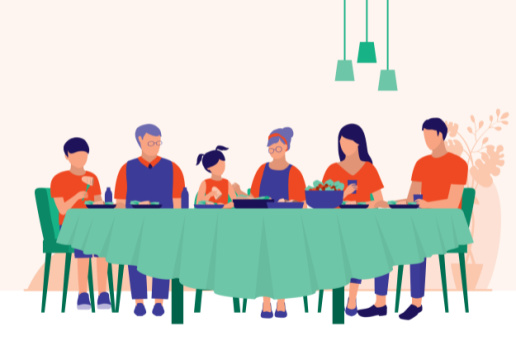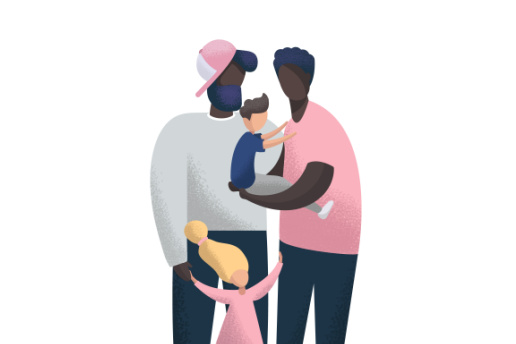 This article was originally published by Creating A Family in September 2021. View original post.
This article was originally published by Creating A Family in September 2021. View original post.
Congratulations! You’ve decided to pursue adoption to build your family. Whether you’ve come to this point by way of a long journey through infertility or you are adding to your current family, we know you have a lot of questions about adoption. We sure did when we got started, and we’re happy to help you with the start of this adventure.
We’ve compiled this list of 5 Questions You Should Ask Before You Adopt. There are lots of links included with each question, to help you learn more if you are so inclined. Don’t get overwhelmed – we are here to help you ask and answer the right questions about adoption now that you are on the road to building your family.
Q1: What Adoption Options Should I Consider?
Understanding the different types of adoption you can choose is the first step in building your family. There are four types of adoption for you to consider:
- Domestic Infant Adoption
- Foster Care Adoption (this can include Kinship Adoption)
- International Adoption
- Embryo Donation (also sometimes called Embryo Adoption)
We have many resources here at CreatingaFamily.org to help you compare these four types of adoption, including our Adoption Comparison Charts. We update our comparison charts regularly. Right now, the entire resource is also in the process of an aesthetic revamp. Keep checking back to this link to track the changes.
 Q2: What Agency is Right for Me?
Q2: What Agency is Right for Me?
Once you’ve narrowed down the type of adoption you want to pursue, it’ time to figure out what agency (or attorney) will be the right fit for your adoption.
We recommend a 3-step approach to help you take on the massive task of finding an agency. It’s essential to interview the agencies you are considering whether by phone or in person. You need to get a feel for the people with whom you would be working. We have lists of questions for domestic and international agencies that you can use to guide your interview. Make sure you also ask for recommendations and referrals from trusted friends and other experienced adoptive parents.
Our multi-media e-guide will help you answer this question!

Q3: Are My Finances Ready For the Expenses of Adoption?
Depending upon which type of adoption you decide to pursue, you should consider your family’s financial status. However, your current financial picture is not all that you need to think about in adoption.
Here are some related thoughts to consider:
- Can I change my current budget to include the expenses of this adoption path?
- Do I possess the willpower, skills, and resources to save more money, downsize my expenses, or increase my income streams while pursuing this adoption?
- Will I be able to afford the increased costs of health insurance to cover the child I adopt? Are there other health insurance plans offered by my employer that can increase coverage or lighten the financial burden?
- Should I increase my life insurance coverage, and if so, by how much? Can I afford that?
- What medical expenses should I anticipate for this adoption – do I have the financial resources to cover those? (This is particularly critical for those who pursue special needs adoptions.)
- Will I need childcare? What kind of budget changes should I anticipate for that?
- Does my current employer offer adoption assistance? Childcare assistance?
Don’t Panic!
The list of questions probably already feels overwhelming – talking about money can definitely increase one’s anxiety about a new venture. Rest assured, you don’t have to have all the answers to these questions now. However, you do need to know what questions about adoption you should consider. Once you identify which questions apply to your process, it can be beneficial information for creating a plan for the path ahead.
 Q4: Do I Have a Support Network?
Q4: Do I Have a Support Network?
We talk about the importance of a strong support network quite often here at CreatingaFamily.org, and with good reason. The journey of adoptive parenting is beautifully complex and fantastically messy. Parenting kids with a history of trauma is both rewarding and challenging. None of us can do it alone. From the feedback we’ve heard in our online community, we recommend the following supports for your growing family if you don’t already have them in place.
Support Groups
Whether you find them online or in-person, support groups are an excellent way for adoptive and foster parents to learn together in a safe place with a unifying mission. They are also a source of peer encouragement from folks who truly “get it.”
Family and Friends
We all need close friends and family with whom to traverse life – we are relational beings who need connection and anchoring. For many adoptive families, their closest friends and family who walk the adoption process with them can be a great support network. If you don’t have that network before you adopt, it’s crucial to find “your people” along the way! You will need the practical and emotional support that those who know you best can offer.
Friends made in your adoption community can also be helpful during the process of your adoption. They can answer your questions about daily life with certain risk factors like prenatal exposure, disabilities, or medical needs. You can ask questions about the medical forms that help create the profile of a child to which you can be open. These new friends can also be valuable resources for learning about transracial adoption, birth parent relationships, and open adoption.
Mentors, for parent and child
When you are starting your adoption process, consider asking your agency or attorney to recommend a mentor. We’ve heard from many adoptive parents that a mentor who is ahead of them in the adoptive experience is beneficial. Mentors can help you learn the ins and outs of the process and normalize the anxieties and stress of the process. Mentors often also act as experienced companions when the process feels like it’s taking too long.
Your adopted child will also benefit from strong, healthy mentorship – especially if you have chosen transracial or international adoption. If you adopt as a single person, you should look for a mentor who is your gender opposite or has similar life experiences to the child you are adopting. You can find mentors within your adoption community, your local community organizations, or a faith community.
Here is more helpful insight on Adopting as a Single Parent.
 Q5: What Do I Need to Learn?
Q5: What Do I Need to Learn?
Your pre-adoption training is just the beginning of your education. There is so much more to learn about once you’ve gotten to the point of choosing adoption. While we don’t want to discourage or overwhelm you, we want to give you a few broad topics to consider so that you can start learning now. Depending upon the type of adoption you choose, your agency or attorney will likely have recommendations (and requirements) for pre-adoptive training to prepare you as well.
Trauma and Trauma-Informed Parenting
The most important research you can start doing now is on the impacts of trauma on a growing child’s brain and how trauma impacts behavior. CreatingaFamilyEd.org has excellent expert-based courses you can take on parenting kids who have experienced trauma.
CreatingaFamily.org also creates free weekly podcasts and articles on a wide variety of topics related to adoptive parenting. Subscribe to the CreatingaFamily.org Podcast here to start learning now.
Open Adoption
Another topic of critical importance is open adoption. Research shows us that open adoption is better for children. CreatingaFamily.org has some great resources on open adoption, including the experiences of birth parents and adopted young persons in their own words.
Learning about managing birth family dynamics and contact, no matter what degree of openness you end up within your adoption process is vital too. Your prospective child’s first family is part of him. He deserves your best, informed efforts to understand and respect them.
Prenatal Exposure
With the wide-sweeping crisis of opioids in the US, we’ve seen an increase in the need for evidence-based information on the impacts of prenatal exposure. No matter what type of adoption you are considering, it’s helpful to understand prenatal exposure and how to parent a child with exposure most effectively.
… And Keep Learning
In addition to asking what you should learn before adopting, it’s worth asking yourself if you are up for the efforts of life-long learning. Your adopted child will have many issues to process across his ages and stages of understanding his story. He will need you to navigate those with him, and preparing yourself as he grows will serve you both well.
Adoption is the Adventure of a Lifetime!
As complicated and overwhelming as these five questions might seem, we are excited to welcome you to the adventure of a lifetime. As often as we ask our followers and community members to share experiences and input on the process, we always hear the same thing:
You can do this, and it will be so worth it!”
The good news is that you never have to do this alone. CreatingaFamily.org exists to strengthen and inspire families just like yours. We are committed to preparing parents to understand their child’s unique gifts and challenges, so you can all thrive together.
This article was originally published by Creating A Family on September 2, 2021. View original post here.



